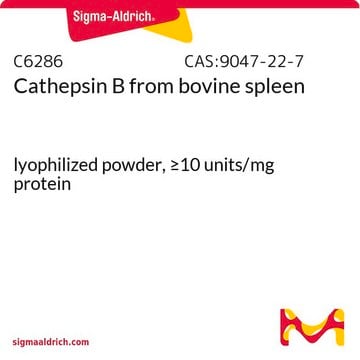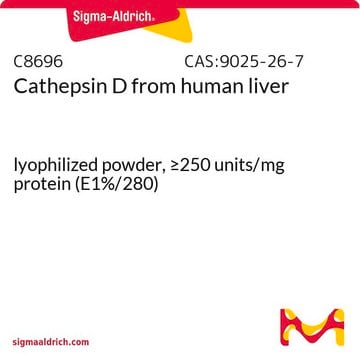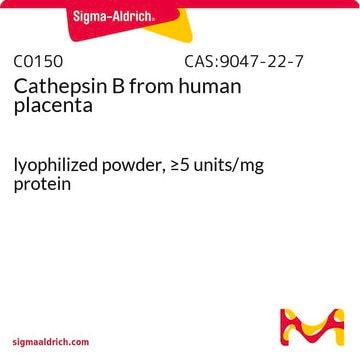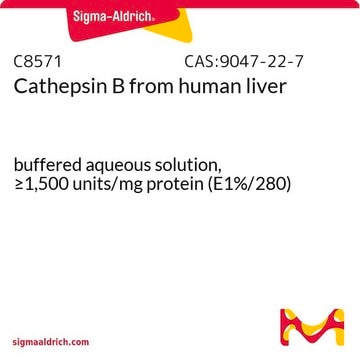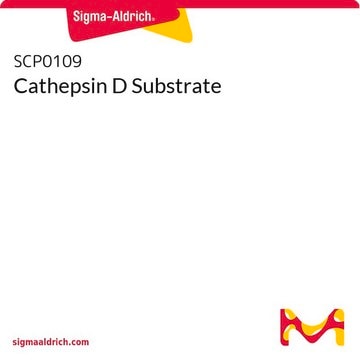C3138
Cathepsin D from bovine spleen
lyophilized powder, ≥2.0 units/mg protein
Sinónimos:
CTSD
About This Item
Productos recomendados
biological source
bovine spleen
Quality Level
assay
10—70% protein (biuret)
form
lyophilized powder
specific activity
≥2.0 units/mg protein
mol wt
~45 kDa
manufacturer/tradename
Sigma-Aldrich
technique(s)
activity assay: suitable
color
dark brown
suitability
suitable for molecular biology
UniProt accession no.
application(s)
life science and biopharma
storage temp.
−20°C
Gene Information
cow ... CTSD(282883)
¿Está buscando productos similares? Visita Guía de comparación de productos
General description
Cathepsin D is a soluble endosomal-lysosomal aspartic protease and is synthesized in the rough endoplasmic reticulum as preprocathepsin D. It is encoded by the CTSD gene located in the 11p15.5 region.
Application
- in in vitro dose-dependent fluorometric activity assays.
- in in vitro myelin oligodendrocyte glycoprotein (MOG) digestion to study the uptake of malondialdehyde (MDA)-modified MOG and its implications in central nervous system autoimmunity.
- for enzymatic digestion of the proteoglycan moiety of the articular cartilage in order to determine its dynamic elastic modulus at two different levels of tissue organization.
- in cathepsin D activity assay.
Biochem/physiol Actions
Unit Definition
Physical form
Inhibitor
related product
Storage Class
11 - Combustible Solids
wgk_germany
WGK 3
flash_point_f
Not applicable
flash_point_c
Not applicable
Certificados de análisis (COA)
Busque Certificados de análisis (COA) introduciendo el número de lote del producto. Los números de lote se encuentran en la etiqueta del producto después de las palabras «Lot» o «Batch»
¿Ya tiene este producto?
Encuentre la documentación para los productos que ha comprado recientemente en la Biblioteca de documentos.
Los clientes también vieron
Nuestro equipo de científicos tiene experiencia en todas las áreas de investigación: Ciencias de la vida, Ciencia de los materiales, Síntesis química, Cromatografía, Analítica y muchas otras.
Póngase en contacto con el Servicio técnico